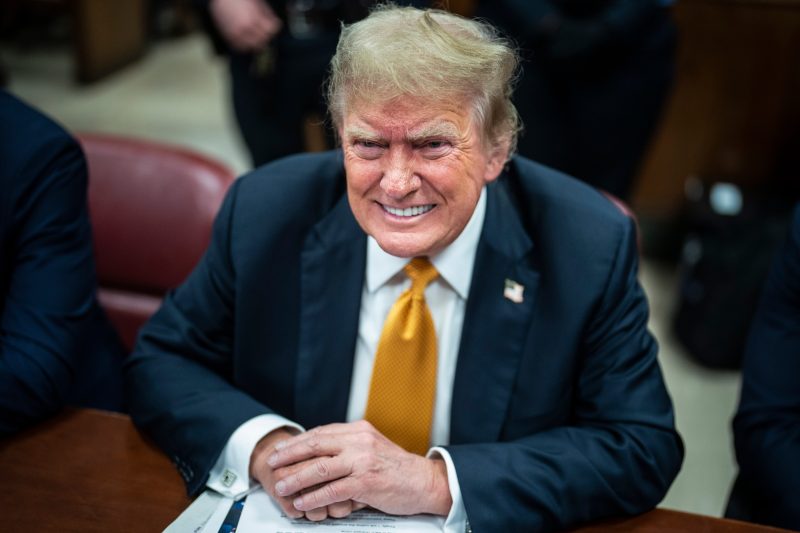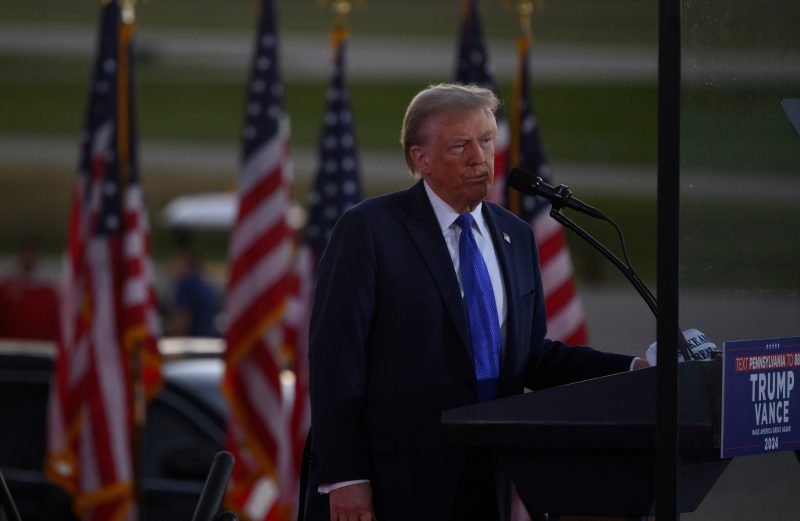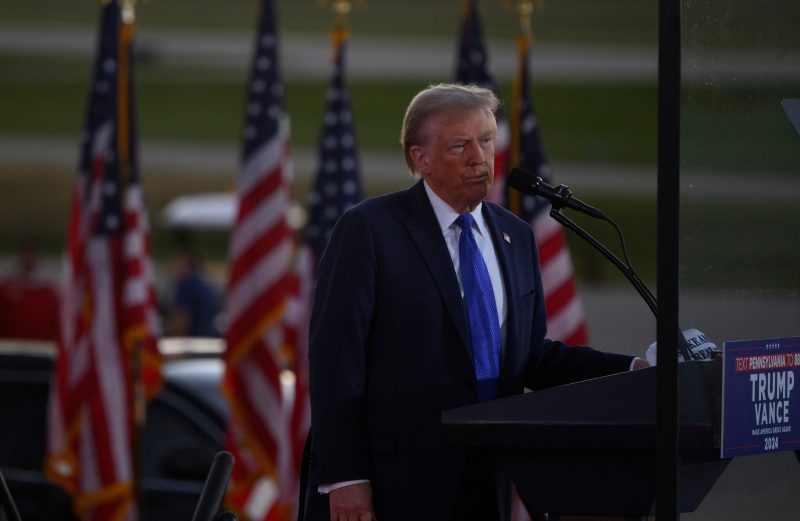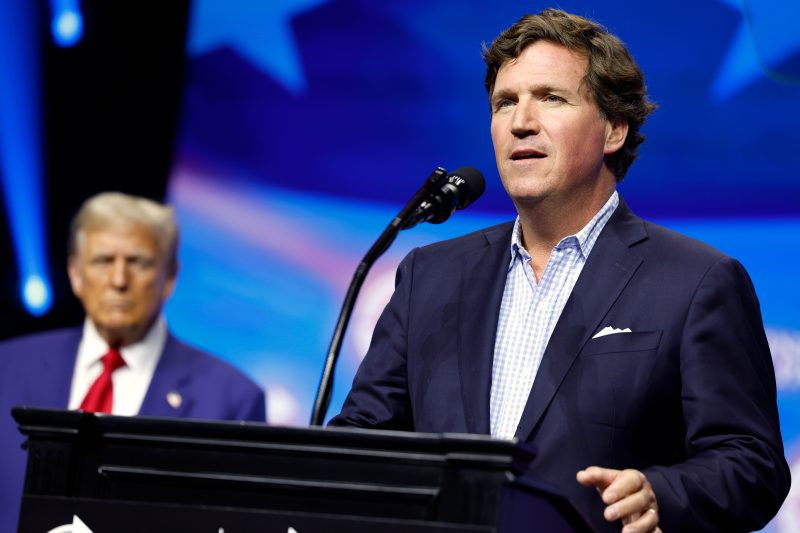
Trump’s age finally catches up with him
When Bloomberg News editor in chief John Micklethwait raised the question of Donald Trump’s age during their conversation at the Economic Club of Chicago earlier this week, the former president got suddenly defensive.
It was not the case, he said, that he had attacked President Joe Biden’s age, as Micklethwait suggested. Instead, he insisted, he had attacked Biden’s competence.
There’s some truth to this. Trump never said Biden was too old to be president, at least not in so many words. He did call him “Sleepy Joe” to suggest that the 81-year-old Biden had perhaps lost a step. And he repeatedly suggested that Biden’s somnambulism must mean that someone else was in charge of running the country.
The reason Trump didn’t simply say that Biden was too old, it’s safe to assume, is that he’s not that much older than Trump. Trump was the oldest president in American history at the time that he served. Biden surpassed him. But if Trump were to win in November, he had reclaim the title in 2028. The last thing Trump needs is people throwing past comments about age back in his face.
Particularly given new indications that he, too, has lost a step.
In early August, The Washington Post reported that Trump’s campaign schedule was far lighter than it had been in 2016 or 2020. Even in the midst of the pandemic, Trump’s calendar had been busier by midsummer than it was this year. In response, Trump defenders suggested that he was just getting geared up, with the slow pace perhaps a function of the attempt on his life in Butler, Pa.
A month later, Axios noted that the pace had not increased. Trump was holding fewer rallies than he had eight years ago. He was doing other things too, of course, holding fundraisers and doing interviews. But there were fewer big, rabble-rousing events for which he had been known.
In recent days, even the number of interviews has slowed. He has canceled or refused a number of recent conversations, including ones from CBS News, NBC News and CNBC. He had been in conversation with a podcast called “The Shade Room,” according to Politico, but that, too, got canceled.
Producers for the podcast told Politico that they were told Trump was “exhausted and refusing [some] interviews but that could change.” The Trump campaign, predictably, denied this claim — but the horse is already out of the barn. Thanks in part to the efforts of Trump’s allies and campaign team earlier this year to suggest that Trump’s then-opponent Biden was incapable of fulfilling his duties as president, age and mental fitness has been an undercurrent to the 2024 contest. It’s now dragging down Trump.
In its most recent polling conducted for the Economist, YouGov found that Americans didn’t generally think that Vice President Kamala Harris’s age (she turns 60 on Sunday) would negatively affect her performance as president should she win next month. Most Americans, though, believed Trump’s age would affect his performance, if only a little. Nearly 4 in 10 thought his age would severely limit his ability to do the job, though much of that is driven by Democrats.
That was before the recent flurry of questions about how well Trump is handling the campaign trail, much less how he would handle the strain of the presidency.
Harris’s campaign last week released records detailing her medical history and health, none of which indicated anything worthy of particular alarm. (Trump suggested that Harris’s allergies, which sometimes cause her to break out in hives, indicated she had “serious conditions that clearly impact her functioning.”) Trump’s 2024 campaign has declined to release medical records. In 2016, his campaign released a notoriously effusive document praising what it called Trump’s unusual vim and vigor. The doctor who was pressured to produce that document has since died.
There is little reason to think that Trump wouldn’t be able to complete another four-year term. The life expectancy for a 78-year-old man in the United States is an additional nine years. But the standard Trump himself set was of competence and capacity. Trump often points to his success at passing a basic test of cognition as an indicator of his — unusually robust, in his presentation — acuity. But it’s not clear when he last took such a test. (As The Post reported in March, Trump’s father, Fred Trump, had Alzheimer’s, a condition that is understood to have a genetic component.)
The insistences from Trump and others in his orbit (like Elon Musk) that Biden’s perceived mental condition has left others in charge of running the government is particularly fraught when turned back around on Trump.
One of the most effective lines of attack Harris has deployed since she became the Democratic Party’s nominee is tying Trump to Project 2025, a compendium of conservative and fringe-right policy plans whose authors include scores of people who worked in Trump’s administration. For all of Trump’s insistences that he doesn’t endorse Project 2025, many of its authors would presumably be tapped to serve in a second Trump administration and be responsible for running the government — whatever Trump’s fitness.
And if Trump were to become incapacitated, the person who is next in line for the presidency would be his running mate, Sen. JD Vance (R-Ohio) — one of the least favorably viewed vice-presidential candidates in recent history. He shares much of Trump’s unpopularity without the depth of support Trump enjoys from his base.
Here we’re considering worst-case scenarios involving Trump’s capacity. His campaign and his allies insist he is the sharp-edged brawler he always was and that he will be for the next four years. Given how much time and energy he and his allies spent questioning Biden’s acuity, though, it seems fair to consider worst-case scenarios surrounding the man who would be America’s oldest president in history.



